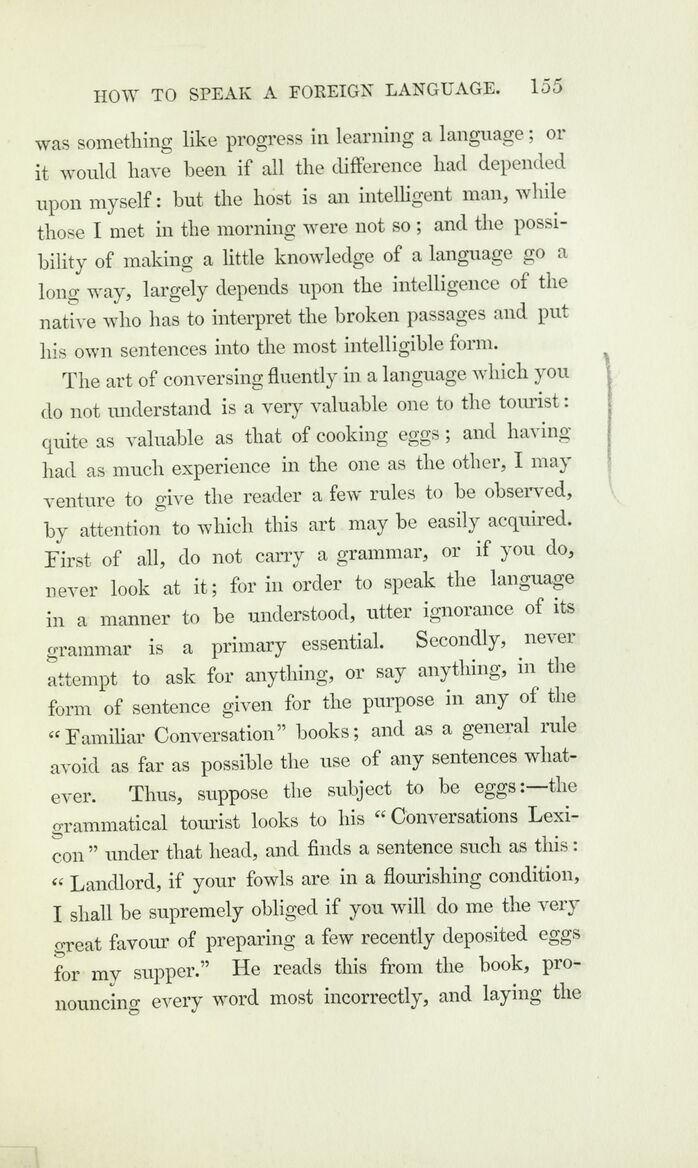
Full resolution (JPEG) - On this page / på denna sida - Chapter IX

<< prev. page << föreg. sida << >> nästa sida >> next page >>
Below is the raw OCR text
from the above scanned image.
Do you see an error? Proofread the page now!
Här nedan syns maskintolkade texten från faksimilbilden ovan.
Ser du något fel? Korrekturläs sidan nu!
This page has never been proofread. / Denna sida har aldrig korrekturlästs.
HOW TO SPEAK A FOREIGN LANGUAGE. 155
was something like progress in learning a language; or
it would have been if all the difference had depended
upon myself: but the host is an intelligent man, while
those I met in the morning were not so ; and the
possibility of making a little knowledge of a language go a
long way, largely depends upon the intelligence of the
native who has to interpret the broken passages and put
his own sentences into the most intelligible form.
The art of conversing fluently in a language which you
do not understand is a very valuable one to the tourist:
quite as valuable as that of cooking eggs ; and having
had as much experience in the one as the other, I may
venture to give the reader a few rules to be observed,
by attention to which this art may be easily acquired.
First of all, do not carry a grammar, or if you do,
never look at it; for in order to speak the language
in a manner to be understood, utter ignorance of its
grammar is a primary essential. Secondly, never
attempt to ask for anything, or say anything, in the
form of sentence given for the purpose in any of the
"Familiar Conversation" books; and as a general rule
avoid as far as possible the use of any sentences
whatever. Thus, suppose the subject to be eggs:—the
grammatical tourist looks to his " Conversations
Lexicon " under that head, and finds a sentence such as this:
" Landlord, if your fowls are in a flourishing condition,
I shall be supremely obliged if you will do me the very
great favour of preparing a few recently deposited eggs
for my supper." He reads this from the book,
pronouncing every word most incorrectly, and laying the
<< prev. page << föreg. sida << >> nästa sida >> next page >>